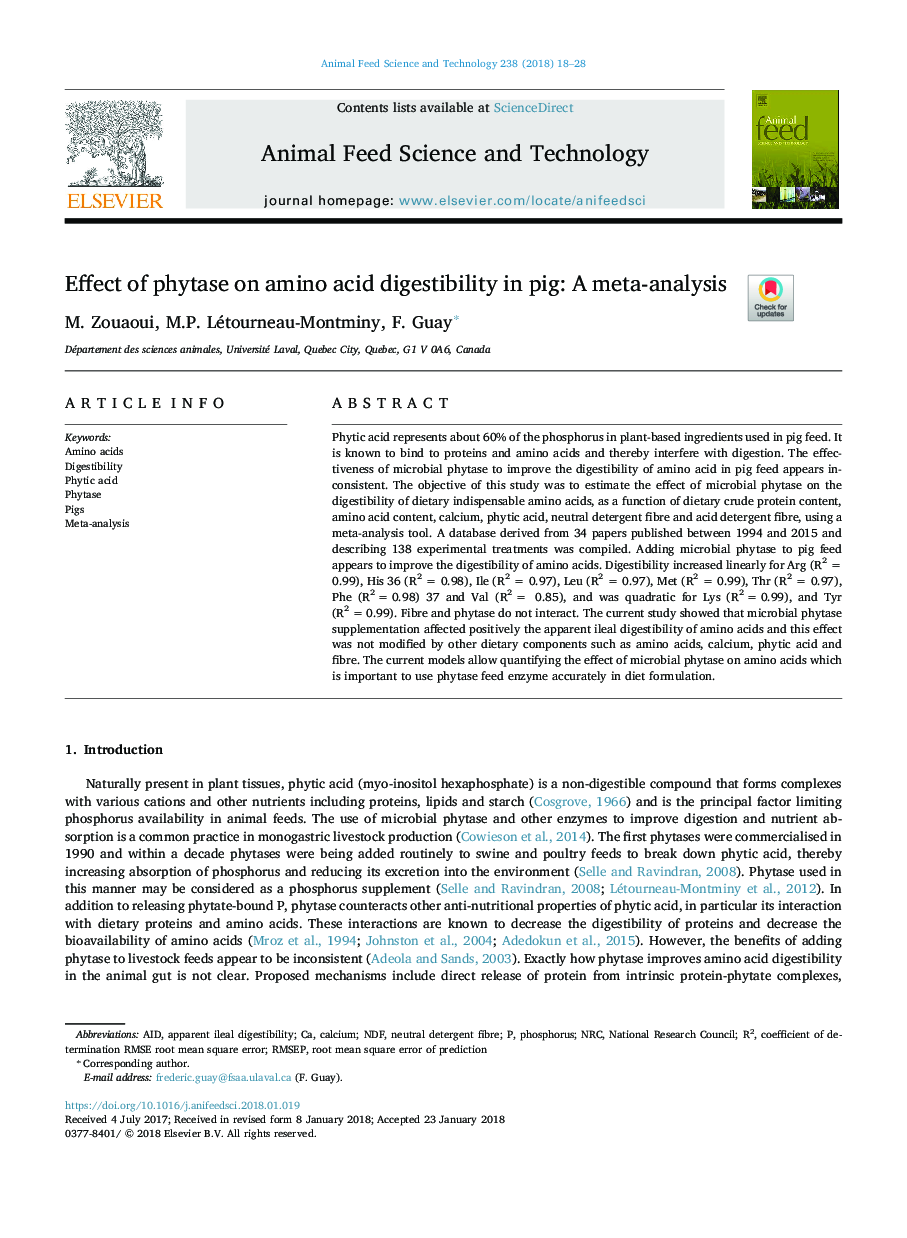| Article ID | Journal | Published Year | Pages | File Type |
|---|---|---|---|---|
| 8490994 | Animal Feed Science and Technology | 2018 | 11 Pages |
Abstract
Phytic acid represents about 60% of the phosphorus in plant-based ingredients used in pig feed. It is known to bind to proteins and amino acids and thereby interfere with digestion. The effectiveness of microbial phytase to improve the digestibility of amino acid in pig feed appears inconsistent. The objective of this study was to estimate the effect of microbial phytase on the digestibility of dietary indispensable amino acids, as a function of dietary crude protein content, amino acid content, calcium, phytic acid, neutral detergent fibre and acid detergent fibre, using a meta-analysis tool. A database derived from 34 papers published between 1994 and 2015 and describing 138 experimental treatments was compiled. Adding microbial phytase to pig feed appears to improve the digestibility of amino acids. Digestibility increased linearly for Arg (R2 = 0.99), His 36 (R2 = 0.98), Ile (R2 = 0.97), Leu (R2 = 0.97), Met (R2 = 0.99), Thr (R2 = 0.97), Phe (R2â¯=â¯0.98) 37 and Val (R2â¯=⯠0.85), and was quadratic for Lys (R2â¯=â¯0.99), and Tyr (R2â¯=â¯0.99). Fibre and phytase do not interact. The current study showed that microbial phytase supplementation affected positively the apparent ileal digestibility of amino acids and this effect was not modified by other dietary components such as amino acids, calcium, phytic acid and fibre. The current models allow quantifying the effect of microbial phytase on amino acids which is important to use phytase feed enzyme accurately in diet formulation.
Keywords
Related Topics
Life Sciences
Agricultural and Biological Sciences
Animal Science and Zoology
Authors
M. Zouaoui, M.P. Létourneau-Montminy, F. Guay,
